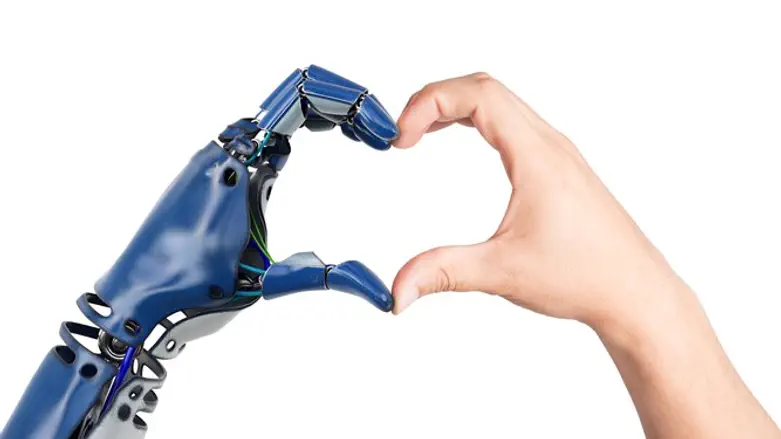
A robot worth $2.5 million is sitting unused in Nahariya Hospital in the Galilee – and why? Because, according to Israel Hayom, the Health Ministry will not authorize a budget for its use.
Meanwhile, operations are being postponed due to financial considerations, patients say.
The story is even more galling due to the fact that the robot was paid for with donations designated for the residents of the western Galilee region. Israel Hayom has learned that the first robotic-controlled operation was supposed to take place this Thursday, but when the patient arrived, he was told that his operation had been postponed.
Nahariya Hospital is already operating according to austerity measures, with the supervision of the assistant comptroller. Its recent request of the Health Ministry to be allotted a budget for the operation of the advanced robot received a response from Eran Hacohen, assistant head of the department of medical centers at the Health Ministry, explaining that, “Due to the fact that a business plan has not yet been created for the operation of the robot, and due to concern that its operation will only increase the deficit, it has been decided that the pilot program for use of the robot will only commence once a business plan has been created that incorporates an agreed-upon budget framework.”
The robot, named “Da Vinci,” is capable of executing complex operations including prostate surgery and gastric bypass. One of its main advantages is that it operates via a robotic arm that is inserted into a relatively small incision as compared to what would be needed if a human was wielding the scalpel. In addition, the surgeon can operate the robot from a distance, even from another room if necessary. It has already been demonstrated that patients operated on by such robots have a quicker recovery and better post-operative results.
Nahariya Hospital has several senior doctors with extensive experience in operating similar robots – among them, the head of Surgery Department A, Dr. Eli Kakiashvili, the head of the Urology Department, Dr. David Kakiashvili, and the head of the Maternity and Obstetrics Department, Prof. Lior Levenstein.
There are 11 such robots already in Israel. According to data obtained from the Health Ministry by MK Ofir Katz (Likud), seven of the 11 are located in hospitals in the center of the country, two are in Jerusalem, just one is located in the north of the country (in Rambam hospital in Haifa), and just one is located in the south of the country (in Soroka hospital in Be’er Sheva).
“The current government has simply forgotten that people live outside the center of the country,” Katz said. “They are ignoring the existence of problems in outlying areas, and are destroying the quality of life for people there. Apparently, those people’s lives are worth less in the eyes of the Ministers of Health and Finance. This is simply disgraceful. I have already approached the Health Minister on this matter and I will do my utmost to ensure that the budget is approved as soon as possible.”
“The Health Ministry has been discriminating against our hospital for years,” related Raya Strauss, president of the Friends of Nahariya Hospital association. “Our hospital serves around 600,000 people, and we have the lowest life expectancy of the whole country. Why do the residents of the north deserve less than those in the center of the country?”